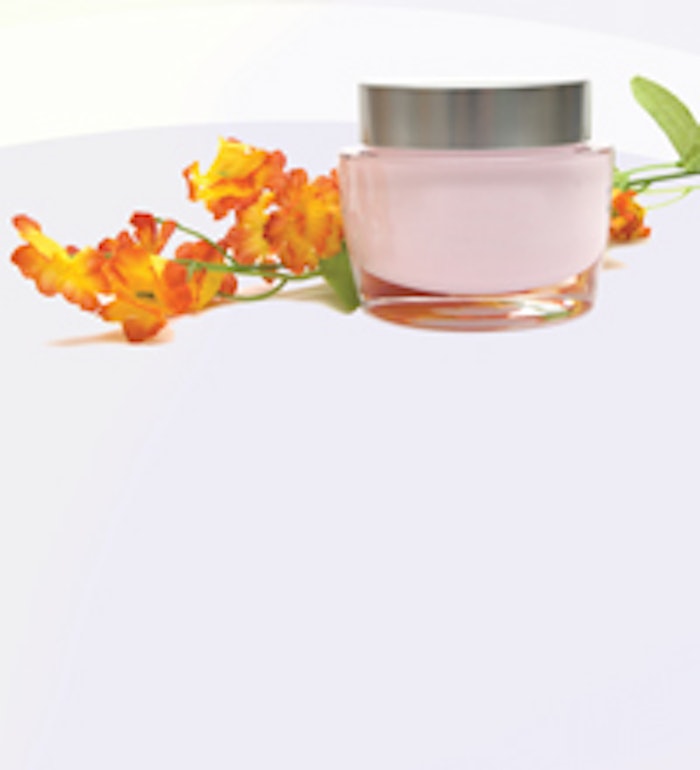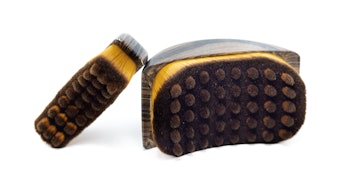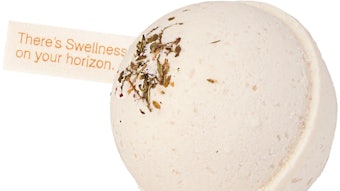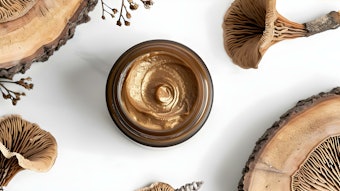
Editor’s note: This is the final installment in the three-part series running in the June, July and September issues of Skin Inc. magazine. The series introduces a total holistic concept to skin care, addressing issues that go beyond the limited common suggestions of mind, body and spirit. An expanded view and definition of holistic was presented in Part 1 of this series, and Part 2 discussed ways to incorporate holistic treatments into a spa. This third installment looks at how a whole food approach can benefit your skin care services.
Health-conscious people know food needs to be in its complete and whole form to get what nature intended to keep one healthy and vital. Processed food that has been bleached, refined or chemically manipulated has had nutrients stripped away, leaving its nutritious value minimized. Eating unprocessed foods is referred to as a whole food diet, and it is often the best diet for not only the health of the body, but also the health of the skin.
Knowing this, it makes sense to use this same philosophy—incorporating whole ingredients—in topical skin care. This is an especially advantageous unique selling point in a holistically minded, green spa.
Whole food philosophy in skin care
What does it mean to have a whole food philosophy in regard to skin care? First, it only pertains to botanical, or plant-based, skin care products. Secondly, it’s understood you are dealing with extracts, which are already a process away from a whole food or plant. A whole food-quality beauty product would, therefore, contain botanical extracts that have not been altered from their extracted states. Just as important, the extract must be in a usable form when applied topically—it’s not as simple as putting mashed food on someone’s face.
Diversity is also essential. A quality whole food diet involves a wide variety of food choices and combinations, such as carbs, fats and proteins, as well as eating foods of many colors. This variety should be matched in a whole food skin care philosophy by selecting a variation of extract types, colors and nutrients for use in treatments and services.
Quality counts
Selecting minimally processed ingredients for skin care products is one way to secure their efficacy. Vegetable oils that have been chemically refined, diluted essential oils and aqueous extracts with minimal plant content will be lacking the integrity necessary for results-driven skin and beauty care. In order to get the best results, research as much as possible to understand exactly what you’re buying, as well as from whom.
When scouting and researching potential products, think food. Look for natural color; thicker, sometimes grainy, textures; and subtle foodlike odors, such as oily, fatty, nutty or green. Also note, there is a short period of time that may be required for both you and your newly initiated client to acclimate to the realness of whole food-quality skin care, including the scents and textures.
Judge a botanical commercial product by its expected results. A product using unrefined, whole extracts should result in an immediate, naturally revitalized appearance and a healing benefit to the skin. Research a manufacturer’s reputation and knowledge of botanical ingredients through the Internet, colleagues and reviews.
Holistically and nutritionally, whole extracts offer more therapeutic benefit. For example, an ingredient expected to have anti-inflammatory effects but missing the very components that give the extract this action will likely be disappointing. However, a whole extract would offer this benefit, because it hasn’t been removed in processing.
Keep in mind that some extracts that have been altered may actually become irritants or create other negative responses due to an imbalance in composition. This is definitely something to watch for when evaluating botanical efficacy and safety.
Refined oils
Vegetable and fruit oils are commonly refined, bleached and deodorized, also known as RBD. Cosmetic manufacturers often prefer RBD oils for their perceived stability, as well as to keep the natural color and odor from interfering with a finished product.
The problem is color and odor can contain therapeutic value that includes antioxidants, phytosterols, chlorophyll, lecithin and fat-soluble odor molecules. The process to refine oils can use bases, acids, bleach and extreme heat, possibly leaving toxic compounds and altering the molecular chemistry of the oil. Certified organic oils use nondestructive diatomaceous earth, but they also still may use damaging heat in refinement.
Partially refining a vegetable oil does remove any undesirable, naturally occurring heavy metals, but the trade-off can be the loss of therapeutic nutrients. Refinement choices in spa products should be based on the manufacturer’s knowledge, with the goal of delivering the best results and safety in formulations. Look at your own fixed oils. What color are they—red, light brown, green or pale yellow to clear? How do they smell—nutty, fruity and fatty or faint and practically unscented? The more natural they appear, the more natural botanical benefits they can likely supply.
Essential oil adulteration
Essential oils are a challenging skin care ingredient due to their lack of standards and regulations. Any synthetic fragrance compound can be labeled as an essential oil, and essential oils are often adulterated through a process of adding individual compounds or synthetics.
Adulteration is performed to stretch the quantity of expensive oil or “balance” the fragrance. The processes can disrupt the natural harmony and holistic structure of the oil and potentially make it an irritant or lessen its therapeutic value.
And even if an essential oil claims to be organic, it can still be adulterated. Although commonly perceived to be straightforward, gas chromatography-mass spectrometry (GC-MS) testing—a method that combines the features of gas-liquid chromatography and mass spectrometry to identify different substances within a test sample—is not a true marker of purity. The only way to really know if your essential oils are synthetic or adulterated is through experience and the trust of your supplier.
Plant extractions
Familiarity with common extraction methods may guide you to develop an understanding of holistic properties. See Extraction Processes for information about the various techniques used to extract oils. Additionally, how the plant material is grown, its geographic location and the farming skills involved all determine therapeutic content and the quality of plant extracts. The quality can also vary according to the integrity and skills of the producer.
It’s important to remember that the whole food concept has not yet infiltrated through to many in cosmetic manufacturing, as well. Many cosmetic chemists are not yet clear on the content due to lack of familiarity with herbs and plant-based ingredients, and they, too, must trust the integrity of their suppliers. Also know that cost is generally higher for quality extracts.
Organic
In today’s market, organic has become a buzzword, though it is often misunderstood or inaccurately used. Your precise knowledge and the ability to express your organic awareness to your clients is very important to your credibility as a skin care professional and as a spa business.
Organic is a well-defined certification that can be found at www.ccof.org/certification.php, and it has specific growing standards for food. That a plant is grown without pesticides or industrial fertilizers, as well as being free of genetically modified organisms (GMOs), are the main qualifications. Your single ingredients may be certified organic, and there are also new standards and certifications that are being adopted to define and certify organic personal care products, which can be viewed at www.oasisseal.org.
In a holistic model, organic will be presented as the desired choice, though some ingredients are not available as organics. In this case, exceptions are made if the benefit outweighs the desire for an organic product.
Synthetic or natural?
The argument of natural versus synthetic in skin care can be a confusing topic. It has been stated that synthetics have no value or purpose in a whole food diet, but many times, synthetic supplements are acceptable for their value in support of the whole food diet and skin care philosophy. Here is where the line between synthetic and natural becomes blurred.
Natural, unlike organic, has vague definitions. Some ingredients used in skin care are necessary for emulsion, texture and stability. These are mainly synthetic, though they may be labeled as derived from a plant source. A surfactant, or cleanser, may be derived from organic coconut oil, but it must go through a reaction process with a base to become soap. This is no longer truly natural or organic, as the coconut oil has been synthetically altered from its extracted form. Yet it has a place as a whole food-type product due to the fact that there are no effective cleansers that are not synthetic.
Stretching the boundaries
There also are energetic or life force properties that contribute to a whole plant extract. Life force is defined as the vital principle or animating force within living things. This is an important aspect to a whole food philosophy for those businesses that include energy work. Flower essences contain no plant compounds, only the energetics and life force of the plant. It is believed by intuitive producers that gentle, precise processes retain the vital energies and reinforce the therapeutic value of any extract.
Similar to life force is information at the quantum subatomic level. Plant extracts retain the memory of environment, geography, insects and information from seeds passed on through eons of evolution. This memory-information, it is believed, aids in healing, and a synthetic made in a laboratory will likely not have this influence of nature’s depth.
In practice
When considering a treatment following a holistic consultation, the most effective results will come from diversity within products using a variety of whole food-type ingredients and extracts. By following this method, the benefits of a whole food philosophy for natural skin healing and radiant beauty are increased therapeutic outcomes using holistically minded treatments.












